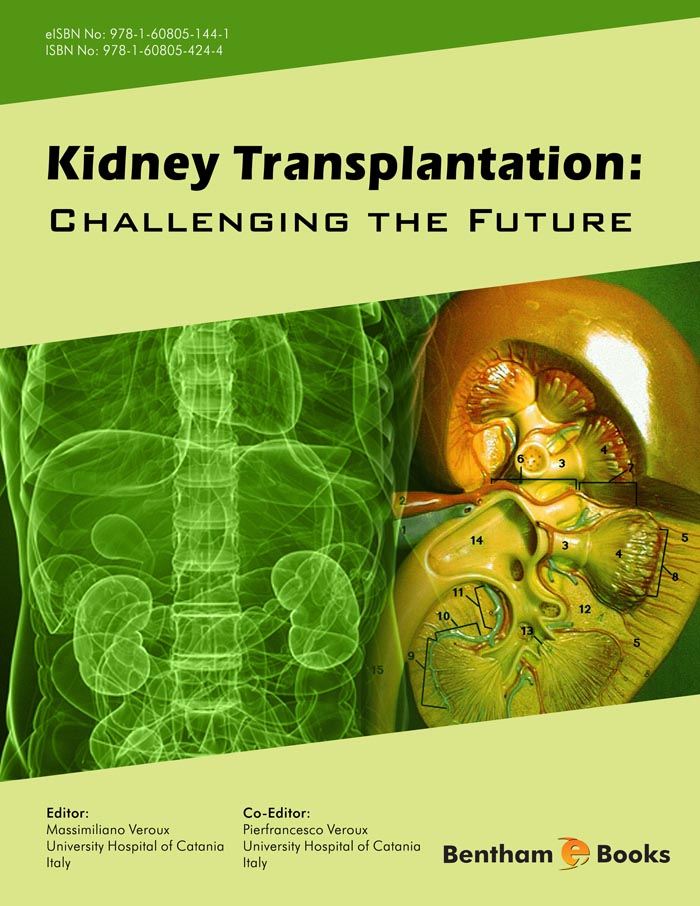Introduction
Kidney transplantation is worldwide considered the best replacement therapy in patients with end-stage renal disease. However, although impressive improvements in surgical techniques and in the management of immunosuppression, long-term results have not significantly changed over the last decades. The purpose of this book is not to be a comprehensive review on kidney transplantation, but it would overview the recent acquisitions in the field of kidney transplantation, by offering to clinicians the future directions and the possible fields of research to improve the long term outcome. The book is divided into 27 chapters. The first part of the book is devoted to the basic principles of immunity and organ transplantation and the clinical evaluation of potential recipient. Moreover, in this section are discussed the most recent strategies to increase the donor pool trying to offer a kidney transplantation to a growing number of patients. The second part of the book is devoted to the immunosuppression. In these two chapters, the authors present an overview on the immunosuppressive management of kidney transplant recipients, with particular emphasis on the minimization of immunosuppression. The third part of the book is devoted to the complications of immunosuppression and to the psychological aspects of transplantation. This section is particularly detailed, and offers a complete point of view on the consequences and benefits of kidney transplantation. Last section is devoted to the future. The clinical tolerance and xenotransplantation are not still the present, but the authors illustrate the fields of application of these fundamental aspects of organ transplantation. The authors and editors have tried to select an appropriate mix of citations, but it has not been possible to cite all the relevant articles. Apologies are due to those authors whose works we have failed to cite. Our goal was to provide the most recent acquisitions in a practical manner. We hope that we have succeeded. Special thanks to all the authors for their excellent and enthusiastic collaboration and special thanks to our patients to whom are dedicated all our efforts.

